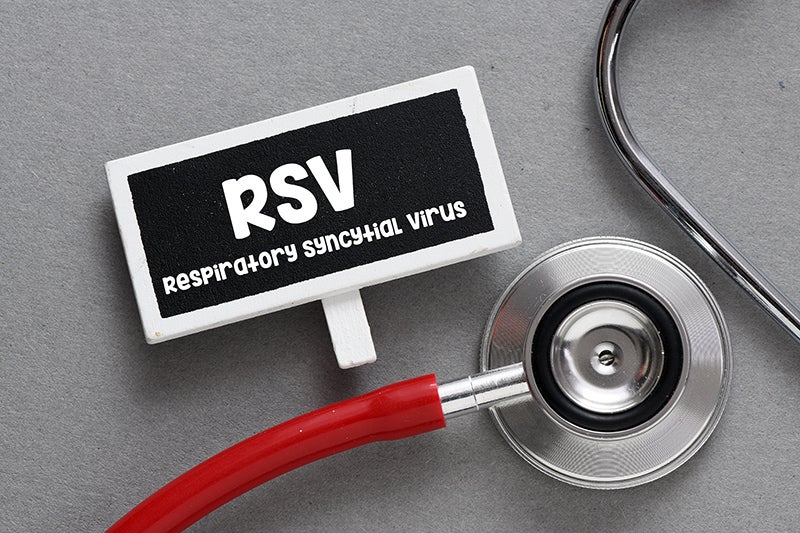What is RSV? How Can You Stay Safe?
December 8, 2022Categories: Health & Wellness, Garnet Health Doctors, Blog

A “tripledemic.” A “tridemic.” The current surge of RSV, flu and COVID-19 is certainly making a lot of headlines and causing national concern as hospitals and healthcare providers are once again stretched to their limits. Two of the factors—COVID and flu—are pretty much household names. But what about the third -- RSV? What is it? And why is it getting equal attention?
What is RSV?
RSV, respiratory syncytial virus, is a major cause of respiratory illness in children and the most common cause of bronchiolitis and pneumonia in children under 12 months in the U.S. The virus usually causes a common cold, from which most people recover on their own without incident. But in babies and toddlers, as well as in older at-risk adults, RSV can sometimes become more serious when it infects the lungs and breathing passages, making it difficult to breathe.
Is RSV on the Rise?
RSV is actually a common childhood illness that usually makes the rounds in November and lasts through the winter. But during the height of COVID, many children did not get RSV because people were sheltering in place, daycare and childcare centers were closed and masks were worn in public. However, many experts suspect that—with mask mandates now relaxed and schools reopened—RSV is now experiencing a bit of a “double whammy.” More children who didn’t get infected during the past couple of years are now not only getting RSV, but they are bringing it home to their younger siblings and other family members.
Can Adults Get RSV?
RSV is highly contagious and spreads quickly via droplets in the air, typically through coughing and sneezing. Most adults, as well as many children, infected with the virus will experience symptoms similar to the common cold. But adults who have compromised immune systems are at risk of a more severe infection.
What are the Symptoms?
According to the Centers for Disease Control and Prevention (CDC), the most common RSV symptoms are:
- Runny nose
- Decrease in appetite
- Coughing
- Sneezing
- Fever
Sometimes, an RSV infection can lead to more serious issues such as:
- Wheezing (a whistling sound heard with breathing)
- Bronchiolitis (an inflammation of the small airways in the lung)
- Pneumonia (an infection of the lungs)
- Dehydration
What is the Treatment for RSV?
For the most part, kids and adults can recover at home with rest and plenty of fluids. It’s important to note that RSV is a virus, so antibiotics will not help in recovery. But sometimes troubled breathing and dehydration lead to hospitalization, especially in older adults and infants younger than 6 months of age.
It’s also important to be aware of signs for potential complications from RSV and call your healthcare provider if any arise. These include:
- Difficulty breathing (like wheezing, labored, or rapid breathing)
- Signs of dehydration or inability to drink enough fluids
- Worsening of symptoms
If more severe issues arise, you should get your loved one or yourself to the Emergency Department or Urgent Care immediately. These include:
- A struggle to catch your breath; in infants you may see their chest and skin sinking in as they breathe
- Extreme drowsiness or lethargy
- Blue lips or fingernails
Can You Prevent RSV?
The CDC recommends the following steps to help prevent the spread of RSV:
- Cover your coughs and sneezes with a tissue or your upper shirt sleeve, never your hands
- Wash your hands often with soap and water for at least 20 seconds
- Avoid close contact—such as kissing, shaking hands, and sharing cups and eating utensils—with others
- Thoroughly clean/disinfect frequently touched surfaces such as doorknobs and mobile devices
Currently there is no vaccine for RSV. But there are vaccines for the other two respiratory illnesses that are part of this season’s “tripledemic.” It’s extremely important for you and all eligible family members to get vaccinated for the flu and vaccinated and boosted for COVID-19.
Following these steps will help protect you and your loved ones this winter.
To hear more from Dr. Poonthota about RSV and other surging infections, listen to her on WJFF’s Radio Chatskills podcast.